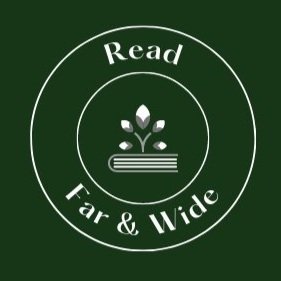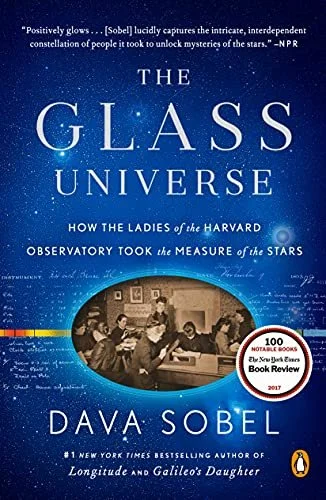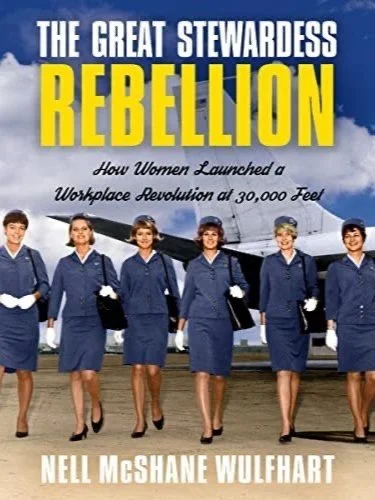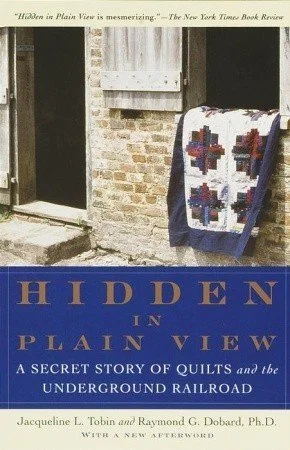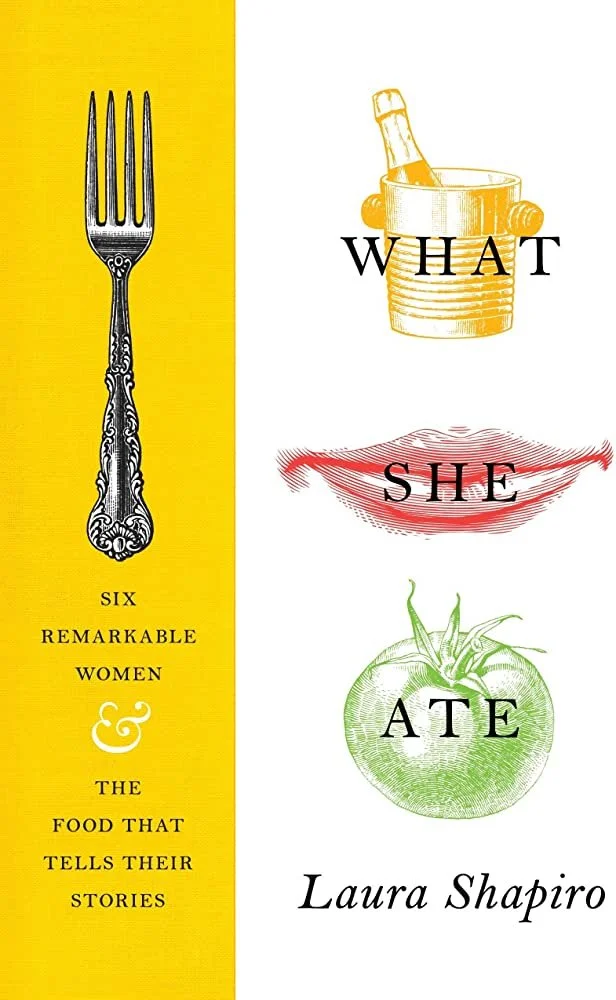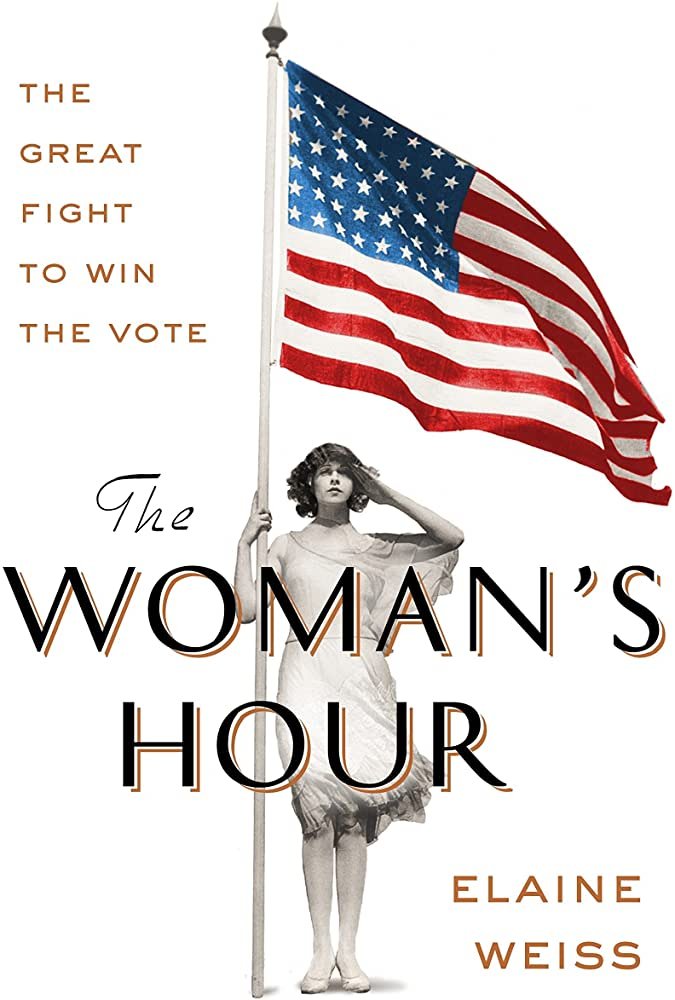Herstory
In honor of Women’s History Month, I want to share some of my favorite nonfiction books written by female authors. But first, I’d like to share how I’ve discovered many of these nonfiction books - through reading fiction books.
Often times, focusing on female authors leads me to discover more fiction, and in my case, historical fiction - as that tends to be my go-to genre. There are amazing authors telling unique, witty, and poignant stories about humanity and the complexities of relationships through fantastic works of fiction. I love these books and how much they enrich my life, and how many have become a life-line in surviving challenging times (here’s looking at you, L.M. Montgomery, Louisa May Alcott, and Jennifer Weiner).
Many times when reading a fun work of fiction, my curiosity is peaked and I start going down Wikipedia rabbit holes. I can’t help but wonder if some event in a work of fiction “really” happened. These excursions have many times taken me to discover nonfiction books by many impressive authors who spend countless hours researching details in order to tell a story that a handful of readers will experience.
As much as I think great works of fiction should be heard, I want to take a moment and celebrate women who write nonfiction by highlighting a few of my favorite books that I’ve recently enjoyed.
My goal in curating this list is not to encourage you to read these specific books, but rather inspire you to reflect on topics that spark your curiosity. I totally understand that reading a book about the harvesting season is not everyone’s idea of a good time! As we read far and wide together, I would love to know nonfiction books you enjoy as, who knows - I may be reading some historical fiction book some day about that topic and want to read more about what “really” happened!
This is such a wonderful time to be a reader, as there are such wonderful books for us to enjoy on a host of topics. And to the many women writers who are working to tell stories that may not make the New York Times Best Seller list - thank you for your work!
American Harvest: God, Country and Farming in the Heartland
by Marie Mutsuki Mockette
Having grown up in middle America, farming was always an every day of life. Although it was common, I did not understand the complexities of the farming industry and specifically agricultural workers. Marie Mutsuki Mockett, the author, who was raised in the Bay Area and inherited farmland in the Great Plains. Wanting to know more about how her land is farmed led her to spend a season with a harvesting crew. Although being raised on the coast and obtaining an Ivy League education created a distance between herself and the harvesters, she bridged this divide with a beautiful prose that develops a respect and admiration for people who are all to often overlooked and misunderstood.
The Astronaut Wives Club
by Lily Koppel
This book has become a regular book club suggestion for me - I love it! As the space race was heating up and NASA was promoting their astronauts as the “ideal American man” in juxtaposition to Russian cosmonauts, the astronaut’s spouses found themselves being used as examples of the American ideal for femininity. Life Magazine had an exclusive deal to follow and report on the wives, and this became material that Lily Koppel detailed in this book. These women were extraordinarily accomplished on their own merit and Koppel tells of their contributions beyond being their husbands’ guests to the White House. Also, being the proud Hoosier that I am, this book made me into an even bigger super fan of Betty Grissom. If reading isn’t your thing, the ABC series based on this book is well done.
Cultish
by Amanda Montell
I have a fascination with “all things cults” and much of what I have read has sought to explain cults, with a focus on the personalities and psychology of their leaders, their followers, the historical time period, and the implications of the cult. Cultish is unique in that it focuses specifically on the language cults, and cult-ish trends, utilize. All too often while watching a documentary or reading a book about a cult it is easy to sit back from afar and wonder how these groups and trends can happen. However, Cultish illustrates how language is utilized to irresponsibly manipulate people into behavior. This book focuses on both tragic and not-so-tragic cultish behaviors, and I found myself reflecting on how to be more responsible with how I use language.
The Doctors Blackwell
by Janice Nimura
I am queasy when it comes to anything medical-related - especially when I’m reading - so I approached this book with hesitation. But WOW - it is fantastic! This is the story of Emily and Elizabeth Blackwell, whom became the first women to receive medical degrees in the United States. As expected, the story around their breaking this barrier is inspiring. What I found most compelling was how poor the medical treatment for women was, and how the emergence of female doctors changed this for the better. I highly recommend reading, regardless of your ability to handle medical details. Personally, I found the reward worth the risk, and especially an important read as a woman in our never-ending fight to break gender barriers!
The Glass Universe
by Dava Sobel
If you found the story of Hidden Figures inspiring, you may like this book, as I found it to be a great companion to the story of the women behind Hidden Figures. This book (although a bit dry and dense) details how the women at the Harvard Observatory catalogued stars and significantly contributed to the field of astronomy. This is a “science heavy” book and I’m not a science expert at all - sometimes I find my 4 year old son’s space books a bit too complex, but I am glad that I stuck it out during the dry parts. I left with a desire to find stories about other women, like the ones at the Harvard Observatory, who diligently work in fields doing tedious jobs, and whose contributions are limitless.
The Great Stewardess Rebellion: How Women Launched a Workplace Revolution at 30,000 Feet
by Nell McShane Wolfhart
The initial allure of this book for me was discovering what it was like to be a stewardess “back in the day.” I could imagine the sexism that women in the early days of commercial airlines experienced, and I wanted to discover what it was really like. This book certainly delivered on that objective - especially in light of discussing the development of stewardess uniforms - WOW! However, what I found most interesting was how this book discussed organized labor in the United States. I’m sure it comes as no surprise that someone who spent 20 years making a living in Republican politics is limited in their understanding of labor movements! This has inspired me to read more.
Hidden in Plain View: A Secret Story of Quilts and the Underground Railroad
by Jacqueline L. Tobin and Raymond G. Dobard
I first saw this book on a shelf at the Appomattox National Historic Site and it caught my eye. However, I didn’t buy it as I tend to buy more books than I read while traveling. Yet, I kept thinking about the title, and was curious about the story behind the title, so a few months after the visit to Appomattox, I purchased the book. I am by no means a talented crafter and quilting just seems so next-level I wouldn’t even try. However, the idea of people using their abilities to craft as a way to enable freedom for enslaved people was riveting. Like many books on this list - it is dense and more technical than what my base knowledge allowed. However, I finished this book inspired by the personal risks these quilters took to create this method of providing safety, in addition to their ingenuity. There is also an interesting question to ponder regarding what defines art, and who gets to decide what’s truly art while reading this book.
Margaret Mead: a Twentieth- Century Faith
by Elisha J. Coffman
As a child I loved a children’s book that told the story of Margaret Mead in a way that could explain the importance of anthology to a kid under the age of 10. There was something about living an adventurous life seeking to understand people who are different that captured my attention. When an American History Professor friend shared she had recently finished a book on Margaret Mead, I couldn’t wait to get my hands on a copy, and it is everything I was hoping it to be. Coffman not only details the accomplishments of Mead to the field of anthropology but delves into the spiritual side of Mead’s life. She carefully describes Mead as a person of faith but not one that can easily fit into a box. This book demonstrates how the spiritual side of Mead is an important aspect of understanding her work. I left this book wanting more books to be written which delve into the spiritual lives of people of signifcance.
What She Ate: Six Remarkable Women and the Food That Tells Their Stories
by Laura Shapiro
You know how in tabloid magazines, there is that section on celebrities that show how they are “just like us?” Well this book is the super smart version of that. Instead of describing Jennifer Garner grabbing Starbucks, this book describes how through marital troubles, the Great Depression, and World War II Eleanor Roosevelt cooked (spoiler: she was a horrible cook). Using six women who made a difference in the world and their relationship to food, Laura Shapiro creatively illustrates to the reader that the cliche can be true: we are what we eat. Learning about food and the impact it has on the lives of people is a fascinating field of research that I hope will only grow!
The Woman’s Hour: The Great Fight to Win the Vote
by Elaine Weiss
On August 18, 1920, Tennessee voted to ratify the 19th Amendment and thereby allowing women across the United States to vote. This book was written in celebration of the centennial of this historic vote. In wonderful and compelling detail, the reader is able to experience the drama of the events leading up to the vote, the actual vote and immediate aftermath. I left with respect for all the leaders of the women’s suffrage movement, regardless of their motivations. This was a collection of women who were diverse yet unified in their purpose. Although many were left behind in this first act of suffrage (namely, African American women), this was an important step to working towards accomplishing the ideals set out by our founding fathers (and mothers).
